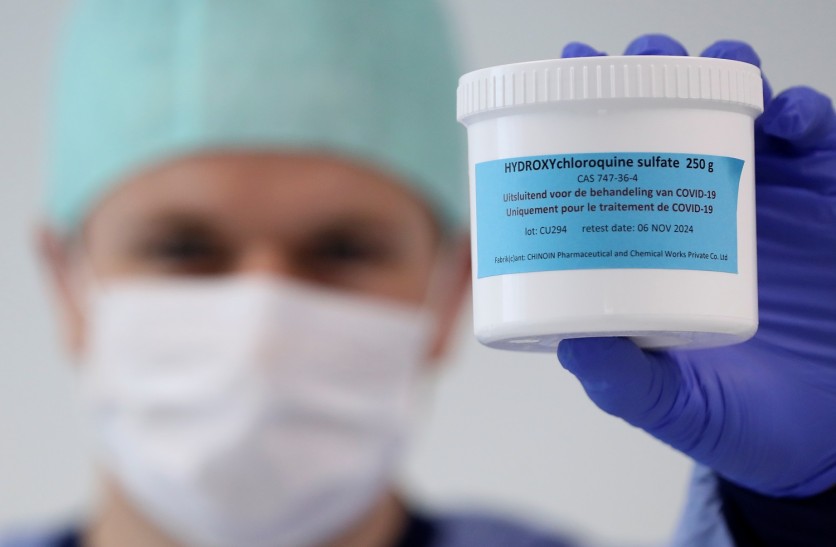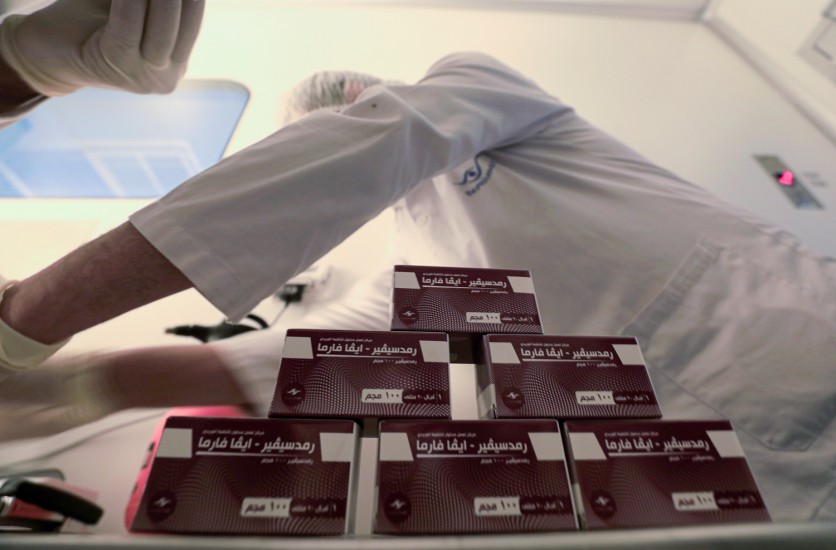A new study found COVID-19 patients who were given hydroxychloroquine (HCQ) have shown higher survival rates than those who were not treated with the drug. The same results go for those treated with a combination of the malaria drug with an antibiotic.
The study conducted by Henry Ford Hospital researchers was published in the International Journal of Infectious Diseases on July 1. As reported by Fox Business, the study saw a "significant reduction" in deaths among admitted patients from March 10 to May 2 who were given the drug compared to those who were not.

"The results of this study demonstrate that in a strictly monitored protocol-driven in-hospital setting, treatment with hydroxychloroquine alone and hydroxychloroquine [and] azithromycin was associated with a significant reduction in mortality among patients hospitalized with COVID-19," researchers wrote in their report.
Hydroxychloroquine has been controversial since President Donald Trump touted its effectiveness since March and claimed he had been taking the drug.
The study also stated that its volunteers were "among one of the largest...assembled in a single institution," including more than 2,500 COVID-19 patients with a median age of 64.
Compared to the 26.4% mortality rate among patients who were not treated with HCQ, deaths in patients who were treated with HCQ alone was lower at 13.5% while those treated with HCQ and azithromycin also slightly improved at 20.1%.
The study found respiratory failure as the primary cause of death among 88% of patients while cardiopulmonary arrest and multi-organ failure as well as cardiac arrest were at 8% and 4%, respectively.
Henry Ford Hospital challenges Oxford's findings
The HFH study challenged the findings by Oxford University researchers published last month that showed treating patients with HCQ has no "beneficial effect." The Oxford study observed 1,542 COVID-19 patients as part of its "RECOVERY Trial" study.
Retrospective analysis of HCQ for COVID-19 from Henry Ford Hospital, ~2nd largest hospital in Michigan.
-Most patients (82%) received HCQ within 24hrs of admission
-Mortality decreased 51% in HCQ group (p=0.009), propensity matched)
h/t @DeeDeeWangMD https://t.co/5rjSRModjC pic.twitter.com/weD8QGghjC — James Todaro, MD (@JamesTodaroMD) July 2, 2020
Following the media attention the study received, hydroxychloroquine trials conducted by the World Health Organization, National Institutes of Health, and pharmaceutical company Novartis and Sanofi were stopped due to a lack of benefits for patients.
While these actions by health authorities and companies have led people to believe the HCQ was already stripped off as COVID-19 treatment, doctors and recovered COVID-19 patients have continued to endorse the drug's effectiveness.
Henry Ford researchers said their study showed different results on the HCQ efficacy because of the timing and process used in administering the drug.
"The benefits of hydroxychloroquine in our cohort as compared to previous studies may be related to its use early in the disease course with standardized, and safe dosing, inclusion criteria, comorbidities, or larger cohort," the researchers wrote in their report.
They added that "later therapy" among patients who "already experienced hyperimmune response or critical illness" will be less beneficial.

Meanwhile, another study published in the Journal of Virus Eradication found that daily HCQ and azithromycin production costs are significantly cheaper than producing Remdesivir, a drug that has shown promising results among COVID-19 patients.
The Wall Street Journal reported earlier this week that its manufacturer, Gilead Sciences Inc., said U.S. hospitals would have to pay $3,120 per patient for the treatment.
![Apple Watch Series 10 [GPS 42mm]](https://d.techtimes.com/en/full/453899/apple-watch-series-10-gps-42mm.jpg?w=184&h=103&f=9fb3c2ea2db928c663d1d2eadbcb3e52)



